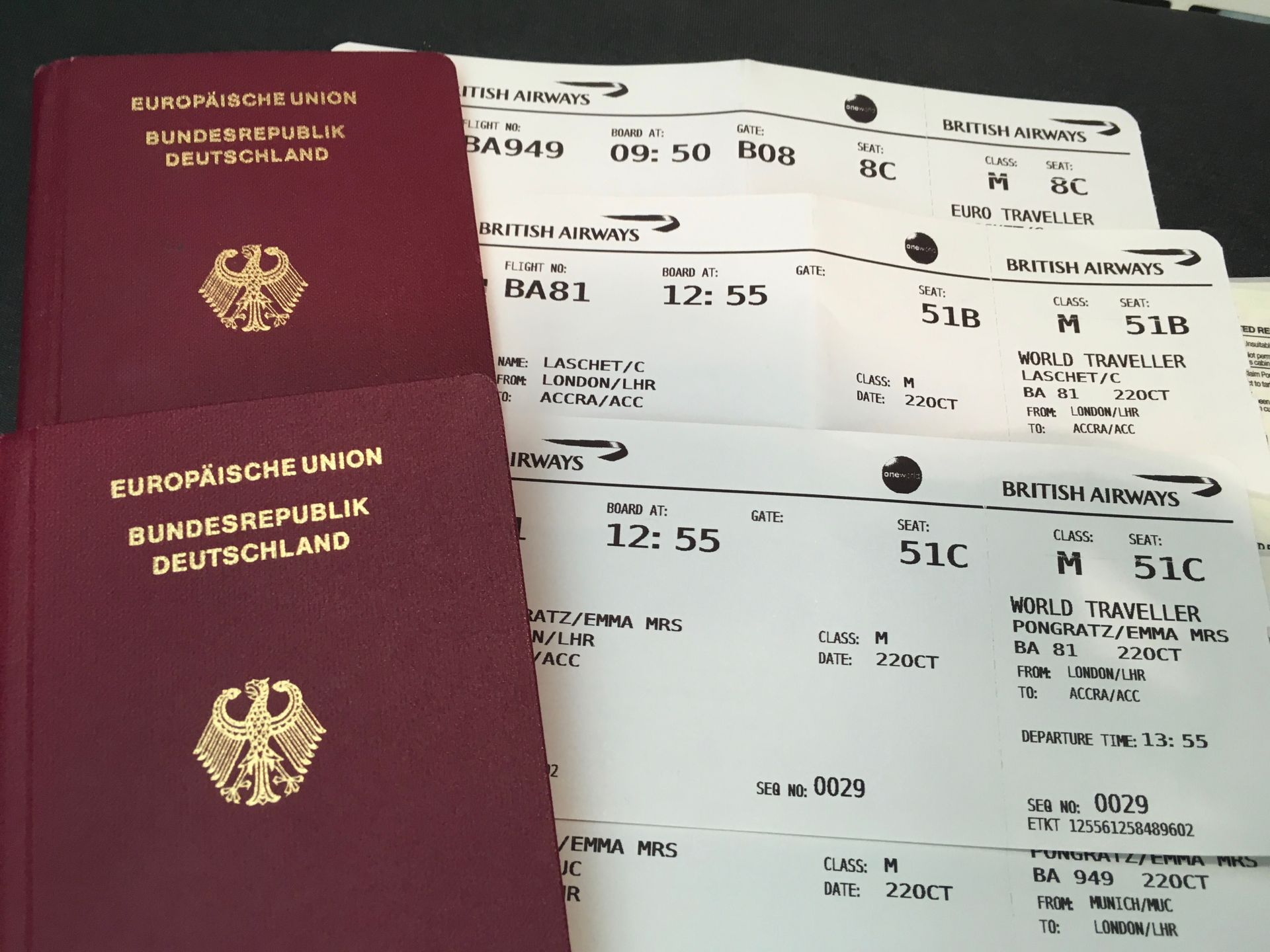Amelie
Hey ihr Lieben, liebe Grüße aus Heidelberg nach Ääääfrica! Eure Eindrücke und Erlebnisse faszinieren mich total Mädels! Ein großes Abenteuer und eine ganz andere Welt. Ich drück euch ganz fest und bin gespannt, was ihr dort noch so alles erlebt. Ich sag nicht Miadogo, ich sag Servus und bis ganz bald! P.S. Könnt ihr mir bitte den Babyhund zuschicken...#firstWeekOfWork
Buga: 02.11.2017
Biyan kuɗi zuwa Newsletter
Tuesday was our first day at the Senya Health Center. We received a brief tour of the Clinic, as the building complex is called by the residents of Senya Beraku. The Health Center is most similar to an ambulance and has the following departments:
OPD (Out Patients Department)
RCH (Reproductive and Child Health)
Maternity + ANC (Antenatal Clinic) + PNC (Postnatal Clinic)
Lab (Laboratory)
Pharmacy
On the first day, we helped in the RCH with the weekly weighing of babies and children (0-5 years old) and supported the pediatric nurses with immunization. Each child has a Child Health Record in which the child's development and vaccinations are documented. It also contains examination and vaccination appointments, as well as pictorial representations of nutrition and hygiene.
The nurses have to document in great detail and even keep statistics on immunization. We felt very comfortable in the RCH, but immediately noticed that the conditions and working methods are very different from what we are used to.
Day two. Motivated, we arrived at 8 am and wanted to work hard. Unfortunately, there was absolutely nothing to do and we searched in vain for work. The staff were partly busy with YouTube videos and sleeping. After this day, we were on the verge of giving up everything and looking for work in Accra. However, we decided to give it another chance.
From the next day, we were in two different departments.
Emma @ Lab: There are three of us working there. One colleague documents the serial numbers and laboratory results of the patients, while MTA Charles runs the laboratory and is also my contact person. My tasks include taking blood samples, measuring blood sugar, RDTs (Rapid Diagnostic Test for malaria), Widal tests (salmonella typhi), determining blood type, urine tests, and HB checks. I call in the patients waiting outside, collect examination materials, perform tests with Charles, and he writes the results on a piece of paper, which the patients then take to another department. The equipment in the laboratory is very poor, for example, we don't have a fully functional microscope and can only analyze urine samples, not blood. For blood tests and other tests, patients have to go to another laboratory a few houses away.
Sometimes we also go to the wards to take blood samples. The wards are two rooms (one for women and one for men) with four to six beds each, where only very weakened patients stay and receive examinations or infusion therapies. They are cared for by the OPD. The work is relaxed so far, the resources are scarce, the colleagues are nice, and I occupy myself with notes in my notebook and cleaning.
Cosi @ Maternity + ANC + PNC: As the terms already explain, babies are born here and pre- and postnatal care for mothers and babies is carried out. There are three of us working here, including me. The first step is, of course, to perform a pregnancy test. If it is positive, the patients receive a mother's pass. Pre-existing conditions, previous pregnancies, vital signs, gestational age, and much more are recorded in it. It serves both to document the examinations performed and to provide information about risks during pregnancy. I usually do this with hands and feet because almost all patients do not speak English. But the midwives are always there to support. In addition, an HIV rapid test and malaria prophylaxis (including handing out a mosquito net) are performed. Births also take place here, which I have not yet been able to witness. I am a little worried about this because the department is undersupplied both in terms of hygiene and materials (instruments, blood transfusions, etc.). There are 3-4 births per week at the Health Center. The mothers stay overnight depending on the time of birth or are discharged directly and come back the next day for postnatal care (umbilical cord care) of the baby. A doctor appears here very rarely, once a week for ultrasound or if needed. The age of the mothers ranges from 17-38 years and the number of births from 1-7 babies per patient. Approximately 20-40 patients come in a day, which actually means a lot of work and is not always easy with the local conditions. The team there is super nice so far. Except for the head midwife, who is referred to as a witch by colleagues and patients and is highly respected. I enjoy working there a lot and not only expand my professional competence (measuring the baby's heartbeat without a CTG, determining gestational age) but also my methods (economical work: washing disposable gloves), personal (coping with the local conditions), and social skills (communicating with hands and feet). I am curious to see how it goes on and look forward to being present at the first birth. The midwives have even written down my mobile number so that they can call me day and night if a birth is taking place.
That's all about the first week of work, more impressions will follow.
Miadogo,
Cosi and Emma
Biyan kuɗi zuwa Newsletter
Amsa (1)


